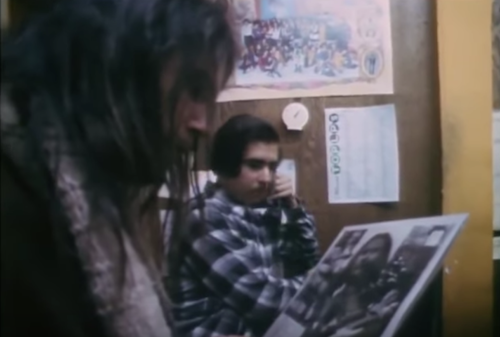
Neil Young explains to a record store clerk why he doesn’t like seeing a bootleg album with his picture on it
It isn’t the way it used to be. Back then, in the early 1970s, an artist released an album, you went to a store and you bought it. The artist decided what you heard and what you didn’t hear. If you went to a concert, you didn’t take the music home with you; you had your memories, and that was it. There was no downloading, no YouTube, no device that you could stick in your pocket or purse and then employ for the purpose of making a video recording.
A few ambitious souls, extreme fans of certain artists, might scheme to smuggle in a reel-to-reel tape recorder, microphones, blank tapes and, if they weren’t caught and tossed out, they went away with a souvenir. Then came the cassette recorder, much smaller and more portable, which made it that much easier. But it was still an effort.
You had to be very determined, and you understood that you were making a sacrifice: The chore of getting this recording was such a challenge—changing tapes, keeping an eye out for ushers charged with making your task impossible—that you might not be able to concentrate on the concert as it was taking place. For whatever reason, your prime concern was having the ability to listen to it another time.
There was also the issue of studio recordings that the artist didn’t release—and didn’t want you to hear. Perhaps these were demos or rehearsal tapes, unfinished songs or songs that just weren’t deemed good enough to make the album. These outtakes and other unreleased recordings were meant to remain in record company vaults forever, locked away so that fans were exposed only to finished products approved by the artist and all other parties.
It didn’t always work out that way. Occasionally, a record company employee, a producer, maybe the janitor, would decide he or she wanted something that no one else had. A tape would get copied surreptitiously. That person would make another copy, for a friend. That friend would make copies for other friends. Trading networks developed so that like-minded fans could own what other fans had.
Then, invariably, someone, somewhere along the chain, would get an idea: Let’s press some copies of this live or studio recording onto vinyl discs, and sell them.
The bootleg record industry, something that had always existed, but on a small scale, became big business starting in the late ’60s. Bob Dylan’s “basement tapes” with the Band, a live Rolling Stones concert, Grateful Dead shows—they all found their way to hungry fans. By the ’70s, bootlegs—rarely sold in legitimate record stores but easily found—were in many rock fans’ collections.
Related: The 10 best classic rock live bootlegs
Some artists didn’t mind as much as others—the Dead even set aside a “tapers’ section” at their concerts so that those so inclined could go about their business without obscuring the view of others. But other artists were livid—they hated the idea of ceding control of their output, whether to enthusiastic fans or to criminal entrepreneurs. They didn’t appreciate that the money went to bootleggers, not to them.
Which brings us to Neil Young. Neil didn’t like bootleg records, not in the least. The film below—our understanding is that Young went to the store, on Melrose Avenue in Los Angeles, while making his film Journey Through the Past—is all about what happened one day in late 1971 (we can tell the date by looking at the Dec. 1971 Pete Townshend issue of Rolling Stone on sale) and discovered unreleased Neil Young music being sold. We won’t give you any spoilers. Watch it and see for yourself. It’s pretty extraordinary stuff, a morality tale of sorts. That moral? Don’t try to rip off Neil Young! (Even if you have no idea who Neil Young is, as the case with this poor, beleaguered clerk.)
NOTE: The clip is frequently pulled from YouTube. It was above, as of November 12, 2024 (Young’s birthday). If you’re not seeing it, you can watch it on SaveTheVinyl.org.
Young’s enormous recorded output is available in the U.S. here and in the U.K. here.
Related: Our Album of Young’s 1972 album, Harvest

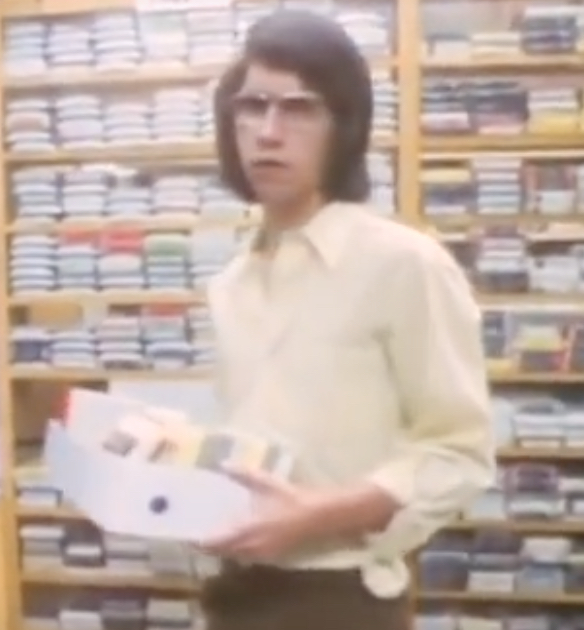

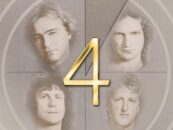
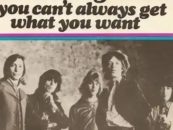
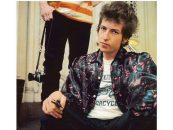

14 Comments so far
Jump into a conversationI felt sorry for the clerk, and Neil was a bit arrogant when he walked from behind the counter, knocking something over and not even being polite enough to pick it up or say something like “Excuse me”. He could have handled the whole situation in a much more enlightened way. After all, the clerk didn’t know who he was and Neil just took the album the first time and walked out of the store. He should have at least shown his drivers license with his name on it. The clerk is responsible for the store and cannot allow thievery to take place. Neil was actually in doing something illegal in this instance and could have been arrested if the police had been called. There are procedures for things like this. Neil should have first called the police and then have them come and confiscate the material.
After all, though the album may have been legally his, he didn’t pay to have it pressed onto vinyl. Nor did he pay to have the album jacket made and printed. In a court case the purchaser or owner of the store most likely would have been held unaccountable for any violation and the person or distributor to the stores would have to be located. But meanwhile, of course we all understand that it’s not right that people should bootleg, and we all understand that a few albums aren’t going to hurt Neil financially, and we all understand the principle and the morals involved. But Neil needs to learn how to be polite to people and not villain-ize people like the clerk or the owner. I’m a bit surprised at his overall behavior.
Although the whole game has changed now, I wouldnt be surprised to find that the “clerk” is in fact the owner.
Back then, an LP cost about 4-5 dollars to a record retailer. Being busted for selling bootleg copies would cost the owner THOUSANDS. Young knew this, and trusted that the “clerk” did as well. Granted, Neil was being a dick, but so was the store for selling records he had absolutley no intention of presenting to the public. Neil was, just 4 years earlier, a penniless musician from a bombed out Canadian city of Thunder Bay, Ont., and at this point was certainly a millionaire when that still meant’
something, but, I think the IDEA of someone who has been all along stealing his art for there own profit probably felt as offensive to him as stealing his guitars. Most musicians wouldn’t be too cordial to
find their stolen instruments for sale in a store, and wouldnt want to leave without them
My Neil Young is such a sweet gentleman.. I would have cussed, sworn, shouted, yelled cuss word after cuss word. Would have been completely wore out from it all. I am female and would have spent the rest of my life haunted by my behavior, and trying to live it down. Amazing composure of Mr. Neil Young, seriously!!
Neil Young is a horse’s ass. Documentation can be found on this page.
What a miracle it is that modern technology allows us to judge and criticize an even that took place some 46 years ago, when many of us were children or not even born yet. 1971 was a very different time than 2017. It’s an interesting piece of history to see the 8 track tapes, the land line phone, and the wind-up phonograph (Victrola or similar brand) in the center of the store. Back then, if you wanted bootleg music you still had to physically go somewhere and look for physical media like a vinyl album or a tape. Simpler times!
There certainly was a better way to deal with bootlegging. Reprise had an few lawyers who could have started the paperwork.
Bootleg 8-tracks were everywhere in the 70s–any truck stop had a display–and Neil was usually next to BTO, C. W. McCall, and Johnny Cash.
Some things remain the same. Extraordinary songwriter. Horrible person.
This is hilarious. No one knows who the hell Neil Young is in a music store? I used to buy boots all the time. We knew they were ‘damaged goods’ but fans of artists love their music is why they sell. Young should have at least been flattered to think someone would buy substandard recordings because they are true fans. Neil can be quite cantankerous as I’ve seen at some of his shows. But, I still love his music and may even own one of the records that was in the store that day.
Bootleg recordings of many artists are very important. So many great moments would have been lost if it weren’t for these guys with tape machines. Maybe a band can’t record EVERY show they perform but to be negligent in recording what they know will be a great show is managements fault although the band could take charge. But I do agree that selling the recordings for profit without consent of the band is wrong.
I started recording shows in 1970, with my RCA portable reel to reel recorder. It was an experiment, to have a souvenir of the show. I progressed to cassette recorders in 1971 and went digital in 2007. I still record shows and many of those recordings are online for the world to enjoy. It’s a way of preserving Rock History!
People are taking this way too seriously. Neil was slyly smiling a couple times during the video. This was essentially a prank video.
I had this album. A lady was coughing throughout the entire concert and her cough was sometime louder than Neil’s music. Probably the first recording of Sugar Mountain. Pretty good version of Words.
Say what you will about Young’s personality, he had a right to be annoyed that his work was being sold without his knowledge (and approval) and, to add injury, without him realizing any money from it. What he should have done was quietly leave, then have his or his record company’s lawyers contact the store’s owner and scare the crap out of him. The clerk was apparently unfamiliar with the term “Nuremberg Defense”.
Phony tape? When clerk rings boss Beatles Strawberry Fields playing in background. During conversation music is fade out to I am the Walrus. A bit of editing there?